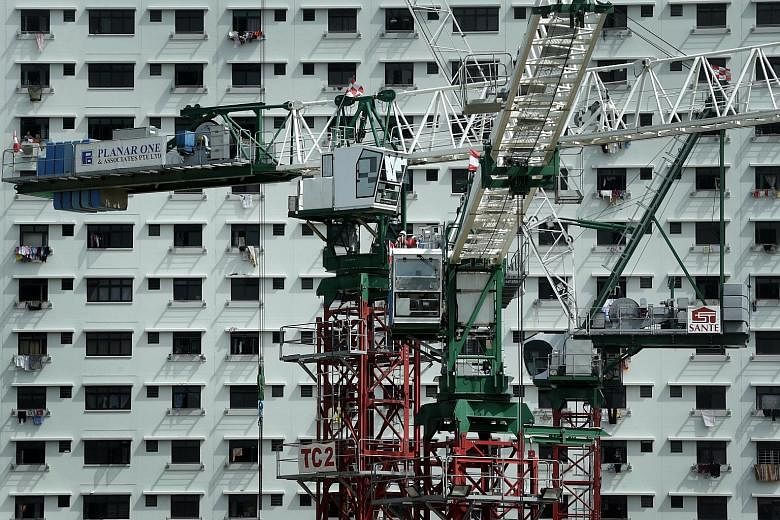Employees in the private sector have some reason to cheer this festive season, as the outlook for bonuses has brightened somewhat on the back of Singapore's better-than-expected economic growth this year.
But they might want to hold back on the champagne and confetti as not every sector stands to gain, say HR analysts. Given that many sectors have yet to benefit from improved economic conditions, soaring bonuses across the board this year are going to be unlikely.
This comes on the back of a recent announcement that their counterparts in the civil service will receive a bonus of 21/2 months - the highest in four years.
Analysts say that while the private sector tends to take public-sector bonus and the economic outlook into consideration, the biggest determinant is still company performance for the year.
"Bonuses for the private sector are driven by financial KPIs (key performance indicators) and depend on affordability, even though they (are benchmarked against) other industries and the public sector," said Mr Lionel Low, senior consultant of talent and rewards at Mercer.
Other factors that come into play in deciding private-sector bonuses include individual performance, industry benchmarks and, in the case of multinational corporations, the performance of the overall group across the world, he added. A strong performance in Singapore is unlikely to boost bonuses if the rest of the organisation in other parts of the world fared poorly.
A poll of several human resource consultancies by The Sunday Times found that most expect overall private-sector bonuses to edge up slightly compared with a year ago, but increases are unlikely to be widespread.
The few sectors that have cause to celebrate include insurance, manufacturing and those related to technology. Mr Na Boon Chong, managing director and partner of Aon Hewitt Singapore, pointed out that these sectors are the ones which outperformed, in line with the recent Singapore third-quarter gross domestic product report.
Differences in bonuses even in same sector
Mercer's Mr Low said that the tightening "war for talent" has also contributed to higher bonuses in these sectors.
"If you think about financial services, they compete with a lot of industries... for talent, such as in the case of cyber-security professionals. As these sectors compete for the same limited pool of talent, it drives up bonuses," he said.
But while HR consultancies mostly agree on which sectors are expected to bag better bonuses, there are mixed opinions on the sectors that did not do well.
Aside from the usual suspects of construction and offshore and marine, which have been going through challenging times in the past few years, Aon Hewitt believes that accommodation and food and beverage services are likely to have leaner bonuses.
Advisory firm Willis Towers Watson, however, expects transport and logistics to be hard hit, while Mercer projects real estate and life sciences to have lesser bonuses compared with the previous year.
But even within sectors, there could be vast differences in bonuses between large multinational corporations (MNCs) and small and medium-sized enterprises (SMEs).
Mr Shai Ganu, Willis Towers Watson's managing director of talent and rewards for Asean and South Asia, said that SMEs tend to have a less structured approach to bonus allocations, depending more on company profitability and owner discretion. He said: "SME bonus levels are generally lower than those of listed companies and MNCs, and tend to be more egalitarian in nature. For example, everyone in the company might receive a set two months' bonus, rather than having their final bonus determined by advance performance metrics or targets."
Mr Kurt Wee, president of the Association of Small and Medium Enterprises, said that he expects bonuses for SMEs to come in between half a month and 11/2 months, excluding the annual wage supplement or 13th-month payment.
While SMEs may pay out smaller bonuses compared with bigger firms, Mr Wee argues that there is greater job stability when working for SMEs. "SMEs don't hire and fire like nobody's business. They are a bit more family-centric. As long as you perform, SMEs generally are prepared to make do with lower margins rather than to retrench more workers," he said.
With the rise of the gig economy, companies will also tend to see more contract workers and freelancers among their ranks. Aon Hewitt's Mr Na said that depending on the length of their contract, most should be eligible for bonuses if they work throughout the year.



